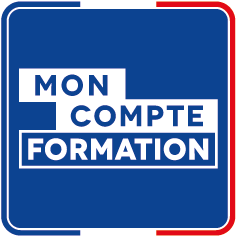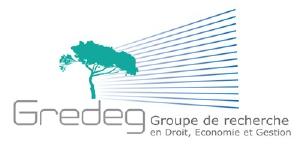
Call to actions
Résumé
The bachelor's degree (licence) prepares students for further study for a master's degree in economics or management and allows them to acquire the basic knowledge and competencies in both disciplines. Read moreObjectifs
Details
Testimony
Accéder aux sections de la fiche
Introduction
The bachelor's degree (licence) prepares students for further study for a master's degree in economics or management and allows them to acquire the basic knowledge and competencies in both disciplines. It also offers non-disciplinary courses (in languages and pre-professional and transversal skills: IT, digital skills and communication).
Specific tracks
Students may also choose to follow a specific track starting the first year of their degree.
- The LAS track (access to health studies) is for students enrolled in the multidisciplinary undergraduate program in economics and management who are preparing for health studies. Students attend lectures held on Wednesdays during Semester 1 and on Thursday and Friday mornings during Semester 2 at the Saint Jean d'Angely Campus.
- The 2D continuum prepares undergraduate students for teaching careers in economics and management. Students can select a discovery unit in semester 4 and enroll in a specific teaching track during their third year (L3). They follow courses in social sciences and economics (SES) or economics and management and complete pre-teaching internships. This prepares students for the MEEF master's degree and for professions in teaching, education and training.
During the second year of the bachelor's degree, students can obtain the Certificate of Initiation to Research in Economics (CIRE).
The purpose of CIRE is to introduce undergraduate students in the economics and management program to the methodology of research in economics and to the various research themes of the GREDEG and ELMI Graduate Schools. Students who join the program commit to complete the entire curriculum. They obtain the certificate if they successfully complete all three teaching units.
More information on CIRE
For the third year of the bachelor’s degree, students choose one of four tracks:
- Economics and business management: The standard track with a choice of electives that prepare for the master’s degree specialization.
- International economics and management studies: Students in this track can spend one semester (semester 5) abroad as part of Erasmus+, BCI, ISEP, MIC or other agreements.
- Economics and human resources management: This track prepares students for jobs in human resources, recruitment, the administrative management of personnel and any other areas of management related to the strategic organization of competencies. This program geared toward employability alternates work with study. It allows students to acquire the tools needed to understand the socio-economic world in which companies or administrations operate.
- Economics and tourism management: This track prepares students to become managers in the new jobs of tourism and leisure in all fields of activity.
For more information about the success and satisfaction rates, please contact the head of each program.
Objectives
Unique features of the program
- Further studies in a wide range of sectors.
- International mobility with the Erasmus program and our partnerships (semester(s) abroad).
- A customizable program with a wide choice of electives, including some in English.
- Multidisciplinary courses in economics and management.
The bachelor's degree in economics and management prepares students for management positions in companies, banks or public service in sectors such as industry, human resources, finance, business, digital industries, research or tourism. Specialization is progressive. During the first two years, studies focus on the acquisition of basic techniques, vocabulary and mechanisms. Half-way through the program, specialization electives lead to more specific professional courses that will be further developed in the master's program.
Additional resources are available on opencourses.
The rate of success was 65% in 2023/2024.
Specificities

Training accessible to disabled people.
Consult the website

Training eligible for MON COMPTE FORMATION
moncompteformation.gouv.fr/
Partnership
Research center
Admission
Prerequisite
Prerequisites training
Target audience
Economics and management programs are ideal for students who like variety. The subjects taught develop both qualitative skills (writing, diagnosing, arbitrating, communicating, negotiating) and quantitative skills (evaluating, calculating, optimizing, quantifying, measuring). Future managers will need to offer advice, diagnose and analyze economic and managerial situations. This requires skills both in writing and with numbers.
Application
Conditions of applications
- First-year admission :
French baccalaureate degree.
Application during the final year via parcoursup.fr. Select: Licence Droit Économie Gestion mention Économie Gestion.
- Second - and third - year admission :
Students who have completed two years of undergraduate study, preferably in the same specialty, are admitted after approval of the equivalency committee. Online application on eCandidat.
Find all the application procedures
Conditions of specific applications
Students who are not required to follow the “Etudes en France” (Studying in France) procedure, must apply for preliminary admission to the first year in a French university [White file]
Students from non-EU countries residing in France must apply for preliminary admission to the first year in a French university [Green file]
See all application procedures
Conditions of admission / Conditions of successful application
Aside from content and subjects, the university gives students a lot of flexibility in organizing their time and activities. Autonomy, the ability to plan and search for information, and a sense of initiative are essential to success.
Program
Content of the academic programm
The bachelor’s degree is completed in six semesters. It includes three types of courses.
- Basic courses in economics and management spread over the three years, often combined with group study.
- Discovery courses: a wide choice of electives in L1 and L2 covering a range of topics in economics and management, and multidisciplinary courses
- Specialization courses in L3 to prepare students for the various master’s degrees offered by the ELMI Graduate School.
Throughout the six semesters of the bachelor's degree, students also acquire cross-disciplinary skills (writing, English, digital skills, documentation and pre-professional skills).
- Licence 1 (1431 hours)
-
Semester 1
Les unités fondamentales
- Principes d'économie 1
Microéconomie 1
Macroéconomie 1
- Management et techniques quantitatives 1
Introduction au management
Mathématiques 1
Découverte en économie et management (4 cours au choix)
Sociologie économique
Les révolutions industrielles
Histoire de l'analyse économique
Grands problèmes économiques et sociaux contemporains
Institutions européennes et internationales
Classical Management Authors and Today's World
Principles of economics: The firm and its environment 1
Economie sociale et solidaire
Compétences transversales
Anglais 1
Grands défis sociétaux : IA 1
Compétences écrites 1
Passeport étudiantSemester 2
Les unités fondamentales
- Principes d'économie 2
Microéconomie 2
Macroéconomie 2
- Management et techniques quantitatives 2
Statistiques 1
Spécialités du Management
Découverte en économie et management (4 cours au choix)
Grands principes du droit
Histoire des mondialisations
Approfondissements statistiques
L'Economie et les autres disciplines
Droit commercial et des contrats
Histoire économique et sociale
Economie et Ecologie
Economie et transformation numérique
European Economics
Principles of economics: The firm and its environment 2
Compétences transversales
Anglais 2
Grands défis sociétaux : TEDS 1
Compétences informationnelles
Compétences numériques
- Licence 2 (1630,5 hours)
-
Semester 3
Les unités fondamentales
- Management
Introduction au Management de projet
Marketing et techniques d'enquêtes
Management des ressources humaines
- Économie avancée
Macroéconomie 3
Microéconomie 3
Statistiques 2
Découverte en économie et management 5 (2 cours au choix)
Compléments de mathématiques
Inégalités, richesse et développement des nations
Economie des marchés financiers
Economie de l'entreprise
Economie des finances publiques
Droit de la concurrence et de la consommation
Business administration
Data analysis
Droit du travail
Droit des affaires
Economie et science politique
Découverte en économie et management 6 (2 cours au choix)
Compléments de mathématiques
Inégalités, richesse et développement des nations
Economie des marchés financiers
Economie de l'entreprise
Economie des finances publiques
Droit de la concurrence et de la consommation
Business administration
Data analysis
Droit du travail
Droit des affaires
Economie et science politique
Compétences transversales
Compétences écrites
Compténces informationnelles
Anglais 3Semester 4
Les unités fondamentales
- Économie et technique quantitatives
Macroéconomie ouverte
Mathématiques 2
- Management
Comptabilité / Finance
Théorie des organisations
- Économie approfondie
Histoire de la pensée économique
Économie de l'environnement et développement durable
Les unités découverte (1 au choix)
- Entreprises et développement industriel
Organisation de l'industrie et des services
Inititation au diagnostic stratégique
Théorie de la décision
- Croissance et territoire
Croissance économique
Economie régionale et spatiale
Transport et mobilité
- Finance et techniques quantitatives
Analyse financière
Microéconomie 4
Statistiques 3
- Analyse des marchés
Economie de la concurrence
Economie publique
Théorie des jeux
- Economics and management 4
Case studies in organizatonal behavior
Economics of innovation
Artificial Intelligence and Economic Dynamics
- Continuum ens. 2nd degré Methodologie du concours et didactique SES/ECOG
Enseigner les sciences économiques et sociales (SES)
Enseigner l'économie et la gestion (Eco-G)
Pré-professionnalisation aux métiers de l'éducationCompétences transversales
Compétences écrites
Compténces informationnelles
Anglais 4 - Licence 3 (1218 hours)
-
Semester 5
Les unités fondamentales
- Management stratégique et digital
Management des systèmes d'information
Management stratégique
- Économie approfondie
Économie industrielle
Économétrie
Choix d'une unité de spécialisation (2 au choix parmis 5)
- Initiation à la finance de marché ( spécialisation "Monnaie Banque Finance Assurance)
Méthode de valorisation des actifs financiers
Produits dérivés et stratégies de couverture
- Économie et stratégies industrielles (spécialisation "Innovation, Entreprise et Société")
Économie et management de l'innovation
Economie des relations inter-entreprises
Institutions et comportements économiques
- Exploitation des données et diagnostics économiques (spécialisation "Expertise économique")
Mesure, analyse et dynamique des dettes publiques
Analyse des réseaux
Bases de données
- Économie et management des Ressources Humaines (spécialisation "Économie des organisations et Gestion des ressources humaines")
Management des Ressources Humaines 2
Économie du travail
Management juridique des risques de l'entreprise
- Continuum 2D - Les métiers de l'enseignement (choix de 1 unité parmi 2)
1 - Continuum 2D ECOG
Préprofessionnalisation aux métiers de l'éducation
Méthodologie des concours et contenu disciplinaire EG
Pratique de classe et didactique de l'Economie-Gestion
2 - Continuum 2D SES
Complements disciplinaires decouverte metier prof SES
Continuum enseignement 2D S5 - Prepro. metiers de l'edu
Metholologie des concours SES
Compétences transversales
Compétences informationnelles
Compétences numérique
Anglais 5Semester 6
Les unités fondamentales
- Économie internationale
Commerce international
Croissance et cycles économiques
Économie monétaire internationale
- Économie et managementApproches renouvelées du management
Économie de l'information et des contrats
Choix d'une unité de spécialisation (2 au choix parmis 5)
- Finance d’entreprise et environnement économique des banques et des marchés (spécialisation "Monnaie Banque
Analyse financière
Organisation des systèmes bancaires
Macroéconomie monétaire et financière
- Défis de l'innovation (spécialisation "Innovation, Entreprise et Société")
Entrepreneuriat à l'ère des transitions
Business competitiveness
Transformation digitale des entreprises et des marchés
- Exploitation des données et diagnostics économiques (spécialisation "Expertise économique")
Econométrie 2
Diagnostics et politiques économiques
Introduction au data mining
- Gestion prévisionnelle et droit social (spécialisation "Économie des organisations et Gestion des ressources humaines")
Comportement organisationnel
Droit administratif et social
Gestion prévisionnelle des emplois et des compétences
- Continuum 2D - Les métiers de l'enseignement (choix de 1 unité parmi 2)
1 - Continuum 2D ECOG
Prepro. aux metiers de l'education CLE2D DRT ECO SOCIO
Methodologie des concours et contenu disciplinaire EG
Pratique de classe et didactique de l'Economie-Gestion
2 - Continuum 2D SESPrepro. aux metiers de l'education CLE2D DRT ECO SOCIO
Complements disciplinaires decouverte metier prof SES
Metholologie des concours SES
Compétences transversales
Compétences informationnelles
Compétences numérique
Anglais 6
Internship(s)
Optional internships to become familiar with the professional environment are possible but must be organized outside class periods.
Periods spent abroad
Virtual mobility can also be arranged with partner universities.
Finally, mobility grants provide financial aid for students who need it.
Assessment
Knowledge assessment procedures
What's next ?
Level of education obtained after completion
Year of highschool graduation
1er cycle (bac à bac+3)Target skills
RNCP URL of content
Consulter la fiche RNCP
- Apply knowledge and concepts in economics and management to major economic and managerial issues and problems
- Prepare for decision-making by applying analytical and diagnostic methods to economic and managerial issues
- Debate economic and managerial issues by drawing on the theories of the human and social sciences
- Participate in the management of a project by implementing planning, management and calculation techniques and IT tools
- Present and argue analyses, summaries and results using appropriate economic and management vocabulary
- Construct a career plan and a plan for further study in economics and management
Target activities / attested skills
The bachelor's degree in economics and management provides students with the basics in economics, management and law applied to public policy and the business world. The degree notably develops the following competencies :
A) Hard skills :
- Manipulate the main concepts of economics, such as micro-economics, macro-economics, money and finance, and economic policy, needed to study and interpret economic documents.
- Master the main concepts of management needed for analyzing the accounting, finances, marketing, strategy, human resources management, and information systems of an organization.
- Identify the processes for producing, disseminating and promoting knowledge.
- Respect the principles of ethics, professional conduct and environmental responsibility.
- Use the basic digital tools and know the IT security rules for acquiring, processing, producing and sharing information, and for collaborating internally and externally.
- Identify and select various specialized resources to find information on a subject.
- Analyze and synthesize data for further processing.
- Develop a persuasive argument while keeping a questioning mind.
- Use the different levels of written and spoken French with ease.
- Understand at least one foreign language and be fluent when speaking and writing in that language
B) Soft skills :
- Work towards a project in a team, independently or in a leadership position.
- Identify and locate the professional fields potentially related to the skills acquired in this program, and the possible pathways to reach them.
- Describe and promote your identity, skills and career objectives in a given context.
- Provide the broad perspective for a situation.
- Determine your role and mission within an organization in order to adapt and take initiatives.
Further studies
- After earning the bachelor's degree (Bac+3), students have access to a wide range of master’s degrees in economics and management at the ELMI Graduate School such as a master’s degree in economics / economics of organizations / human resources management / innovation, business and society / management and international business / money, banking, finance, insurance / tourism. Admissions to master’s degrees are based on the student’s application file.
- The multidisciplinary undergraduate program also includes a third year of preparation for competitive entrance exams to selective business schools (validation of the bachelor's degree in economics and management + preparation for the competitive entrance exams). Admissions are based on the student’s application file.
- Students can go on to study for a master's degree in secondary school teaching (MEEF) and prepare for the CAPES exam in economics and social sciences, or the CAPET exam in economics and management. Admissions are based on the student’s application file and on a competitive entrance exam.
- Students can apply for all civil service entrance exams requiring a bachelor's degree (category A exams). Admissions are based on a competitive entrance exam.
Students who have successfully completed the bachelor's degree and earned 180 ECTS credits can apply for any master's degree in economics and management in France or abroad. Admissions are based on the student’s application file.
Job opening
Business sector or job
Professional integration
Students in the economics and management bachelor’s degree do not usually enter the professional world upon graduation, but pursue their studies with a master's degree either full time or in a work-study format.
More information about employability rates is available on the Observatory of Student Life (OVE) website.
This program does not prepare for specific jobs. Graduates go on to study for a master's degree.
Submission
Tuition
Students who plan to enroll full-time in a public institution of higher education must pay the Contribution to student and campus life (Contribution de Vie Etudiante et de Campus - CVEC).
Students must also pay tuition fees, which are set by ministerial decree for national degrees. They are indexed to the national consumer price index.
More information about tuition fees is available on this webpage.
If you are returning to school after a professional experience, you can find more information about tuition fees on the website of the Université Côte d'Azur Continuing Education Department.
Conditions of submission
Once you have received authorisation to enrol, you will need to complete your administrative enrolment, and then you will need to complete your pedagogical enrolment. To find out when this is done, go to our website.
Once the registration authorisation has been issued, candidates must register online.
Consult the procedure.
Find more information for new students in the student booklet.
Our videos
Contacts
charlie.joyez@univ-cotedazur.fr
sophie.pommet@univ-cotedazur.fr
portail-eg.scolarite@univ-cotedazur.fr


















